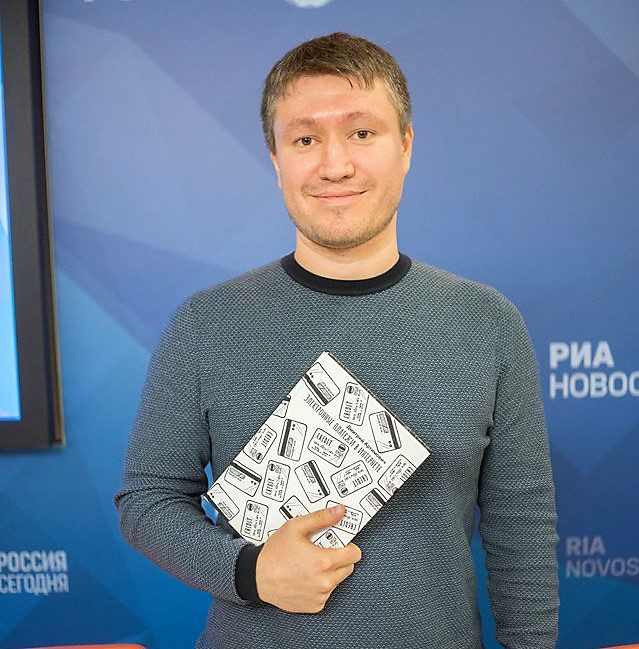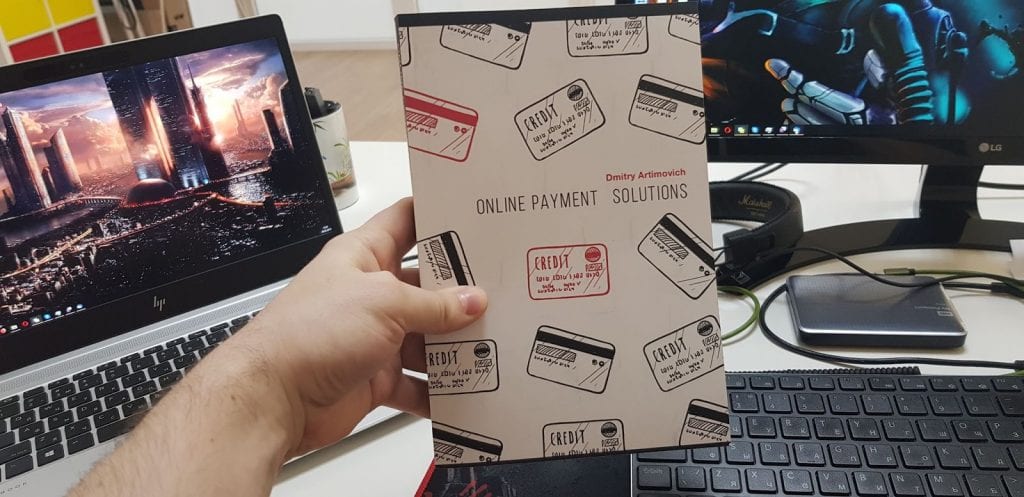Dmitry Artimovich is a leading expert on online payment systems with over 15 years of experience. He is a popular keynote speaker at international FinTech and PayTech events and is called a “Russian hacker” by the world’s largest news sources (The New York Times, Associated Press). Recently Dmitry published his first book, “ONLINE PAYMENT SOLUTIONS.” He shares more in this interview.

Please tell us about yourself and how you gained fame as a “Russian hacker.”
I have extensive experience, starting from being a computer game developer in Liquidator2 and Exodus from the Earth and growing into the CEO of the payment platform ChronoPay. And well,,, (laughing) I was really referred to as a hacker in a few New York Times articles. But that was many years ago, and since then I’ve built an amazing business career with no speculation that I’m a hacker.
Why did you write a book? What is the main issue the book seeks to address?
When I was working for the oldest payment platform, I faced the issue of how to train and educate personnel. Many young lads had no idea how bank payments are wired. We decided to develop an in-house knowledge base (wiki) and then write a textbook. Thus Online Payment Solutions was born. And the book was publicly recognized as a good one, covering the development history of Visa and MasterCard and a detailed comparison of payment legislation in different countries, as well as chapters addressing how internet acquiring works.
To whom you would recommend your book?
-
Employees of Internet payment service providers. The book was initially written for them in Russian and then translated and adapted for EU legislation.
-
Bank workers dealing with Internet acquiring.
-
E-commerce managers. The book will help them understand how bank cards work and how the payment commission is calculated.
The book will be interesting for anyone curious about the largest financial company in the world, VISA, and the history of credit cards. The VISA ideas, created by founder Dee Hock, are really impressive.
What value does Online Payment Solutions bring to the table?
It is a summary of many useful things to make you payment-smart. Inside, you can find out:
-
The basics of bank system and payment transfers.
-
How payment systems first appeared and developed.
-
How payments are performed in payment systems, technical procedures, rules of payment systems, and payments for high risk business categories (e.g. online casinos, adult websites, etc.).
-
A detailed comparison of payment legislation in the US, EU, and Russia.

How do you estimate the card payment price and who pays it?
Good question for owners of online stores. The cardholders pay for card transactions; the commission is simply included by the seller in the final cost of the goods.
Usually we talk about the commission that the payment service provider (or an acquiring bank directly) charges the e-shop. The commission consists of two parts. The first interchange fee is the percentage that is taken by the bank that issued the card. The interchange fee was introduced to stimulate banks to issue cards, so the banks would be financially interested to issue cards and maintain the payment infrastructure. In Europe, the interchange fee is about 0.2% for debit cards and 0.3% for credit ones. At the same time, the interchange fee itself depends on the location of both the acquirer bank and the issuer bank. If they are located in the same country, there’s one rate, if in different countries — other rates are applied.
The second part of the commission is what the payment service provider (or acquiring bank) earns. It also includes the fee for Visa/MasterCard services (they are usually a small part of the total commission).
How does the merchant get the money from the card?
There are three stages of transaction processing in payment systems:
-
Authorization to get permission from the issuing bank to conduct the transaction.
-
Clearing to confirm the transaction (usually it is sent as a clearing file at the end of the working day).
-
Mutual settlement. Mutual settlements are usually performed on the third day, when payment systems (or operators providing clearing and settlements) process the clearing files and instruct the clearing centers how much money to transfer to each party. In this case, all parties of the payment systems must maintain a certain amount of money on accounts in settlement banks.
And only after that the parties of the payment systems pay the merchants, since the merchants themselves cannot operate as parties in the payment process.
How do payment systems deal with fraud?
Payment systems’ popularity resulted in countless frauds. Initially it was very easy to fake a bank card, as the card number was just embossed on plastic.
American lawmakers introduced the Fair Credit Billing Act of 1974, which declared that the cardholder is not responsible for a purchase that he/she did not make. The cardholder only needs to contact the bank within 60 days and report a fraudulent payment, and the bank must either prove that the holder has made the transaction or return the money. This law offered a powerful drive to further develop systems to protect against fraud:
-
PCI DSS (Payment Card Industry Data Security Standard) was developed and adopted to impose a number of requirements and restrictions on operations with payment data, equipment, and software certification.
-
3D-Secure standard was introduced to protect retail outlets from so-called friendly-fraud (when the cardholder himself declares that he did not make the payment).
-
EMV chip, which, unlike the magnetic strip, cannot be copied.
When can stolen money be refunded to a card?
According to the general Visa and MasterCard rules, you have 120 days to void the transaction if you did not perform it. Moreover, if the transaction was performed online simply based on magnetic strip data (without an emv chip) or without 3D-Secure, then the payment systems will take the side of the cardholder in the dispute. But the laws differ in different countries; in some, you have 60 days, and in others, you only have one day (for example, Russia). So if you do not notice and report fraud during the period allowed by law, then your bank will have to decide whether to refund the money. If the bank refuses to refund the money (although the rules of payment systems indicate 120 days), then you cannot complain either to Visa or MasterCard.
Tell us a secret: which card is in your wallet? Visa or MasterCard? Why?
Both. Personally I don’t have preferences. It makes no difference for a card holder. Cards of both brands are accepted all around the world, though there are exclusions such as China and some African countries, where sometimes neither Visa nor MasterCard will work.
What are your professional plans for the future?
Now I am engaged in projects related to other Internet technologies, and I will be able to share more information a bit later. So far it’s a secret.
Dmitry’s book is available on Amazon



































